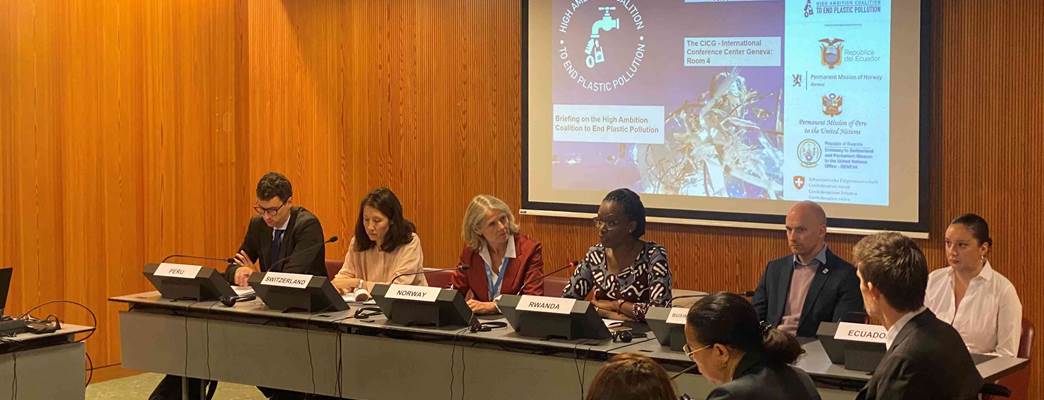“Bold steps are needed to address this global threat”, said Rwanda’s ambassador Marie Chantal Rwakazina during the opening.
The coalition currently has 32 members from all regions of the world. The co-chairs invited more to join before the Intergovernmental Negotiating Committee gathers in Punta del Este in Uruguay for its first meeting at the end of November.
The coalition’s goals are to end plastic pollution by 2040 through restraining plastic consumption and production to sustainable levels, enabling a circular economy for plastics that protects the environment and human health, and achieve environmentally sound management and recycling of plastic waste.
“We see an ambitious global agreement as the most effective solution”, said Norway’s ambassador Mørch Smith. “We now have a window of opportunity to establish the needed legally binding framework by the end of 2024. If we do not meet this deadline, this window may close rapidly.”
John Duncan from WWF also provided an overview of the Business Coalition for a Global Plastic Treaty convened by the Ellen MacArthur Foundation and WWF. The Business Coalition brings together businesses and is supported by NGO partners, with currently over 80 organisations aligned on the shared vision of a circular economy in which plastic never becomes waste or pollution, and the value of products and materials is retained in the economy. Duncan underlined how it makes financial sense for businesses to advocate for less pollution and how this shift also opens for new business opportunities.
Having announced that Cabo Verde would join the Coalition, ambassador Clara Delgado talked about specific problems caused for small island states, such as pollution from plastic fishing nets. Delgado also used the occasion to encourage other small and developing states to follow Cabo Verde in joining the High Ambition Coalition.
Several others took the floor during the question and answer session to express support and stress the urgency to act soon. Some actors also underlined the need to have a human rights-based approach in the continued process to eventually strengthen the treaty.
